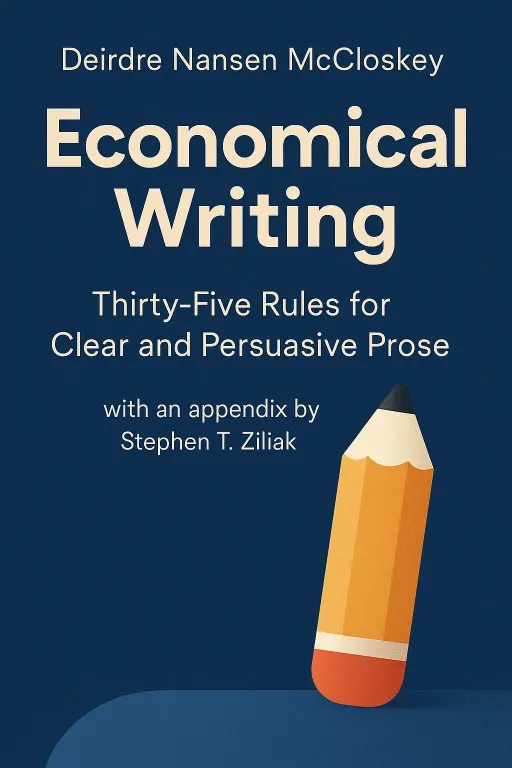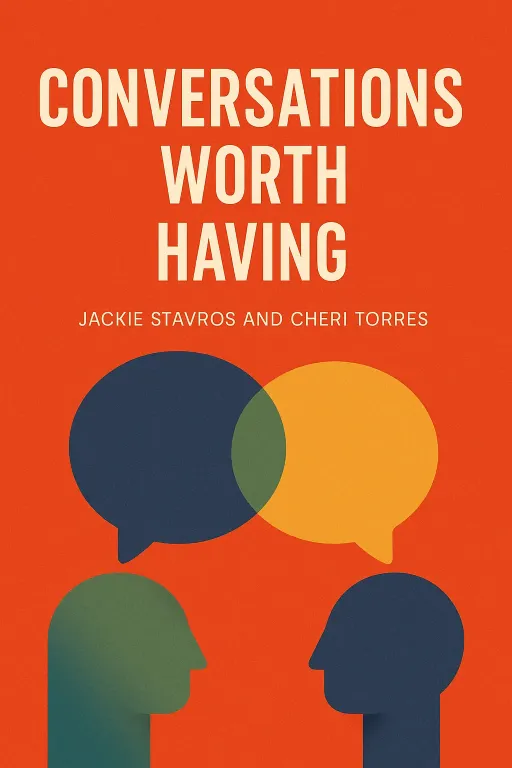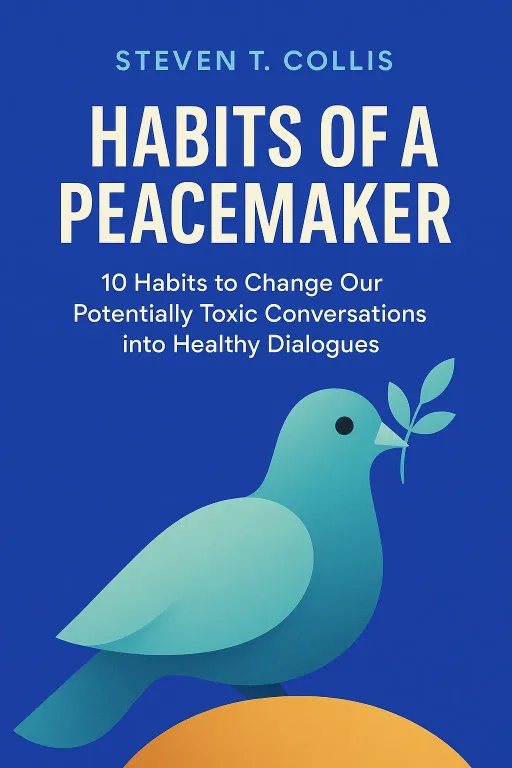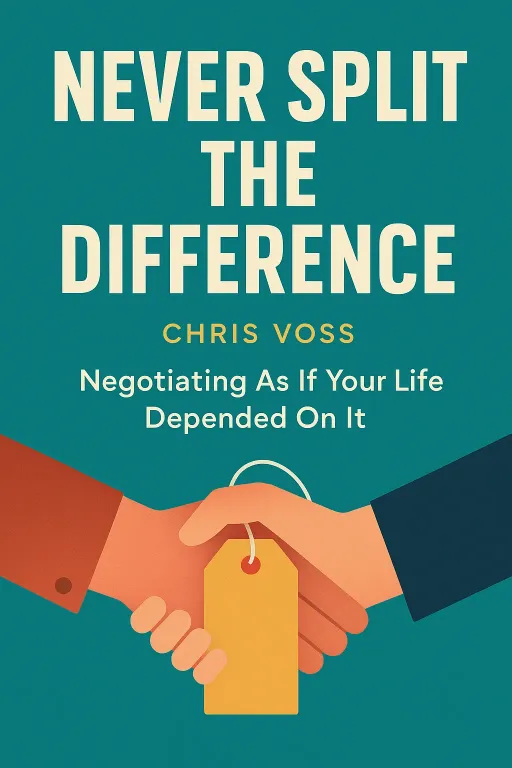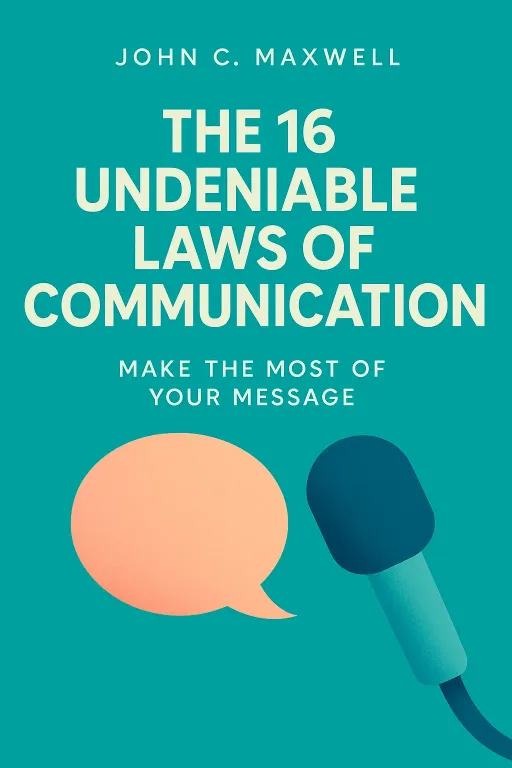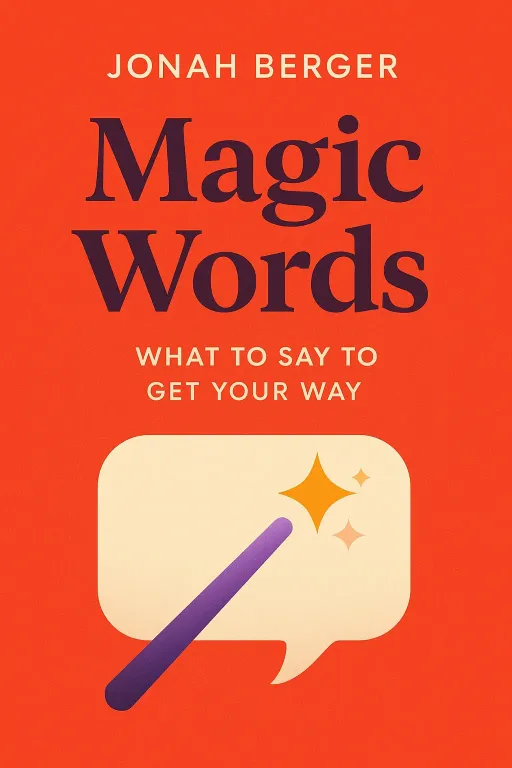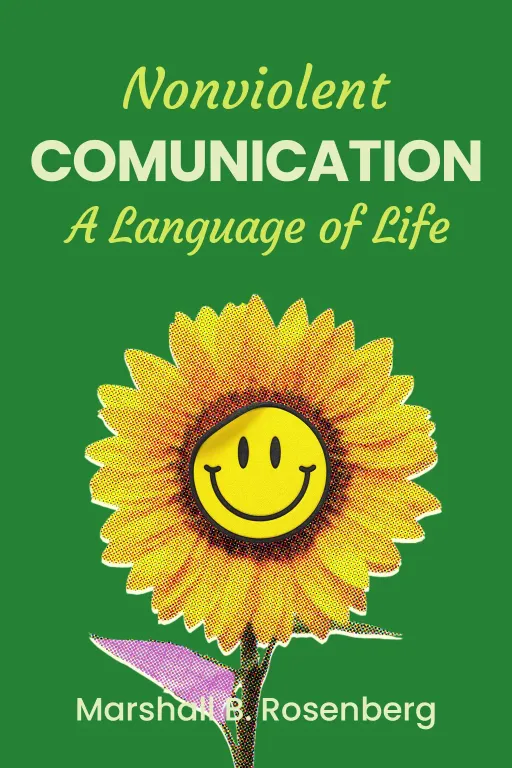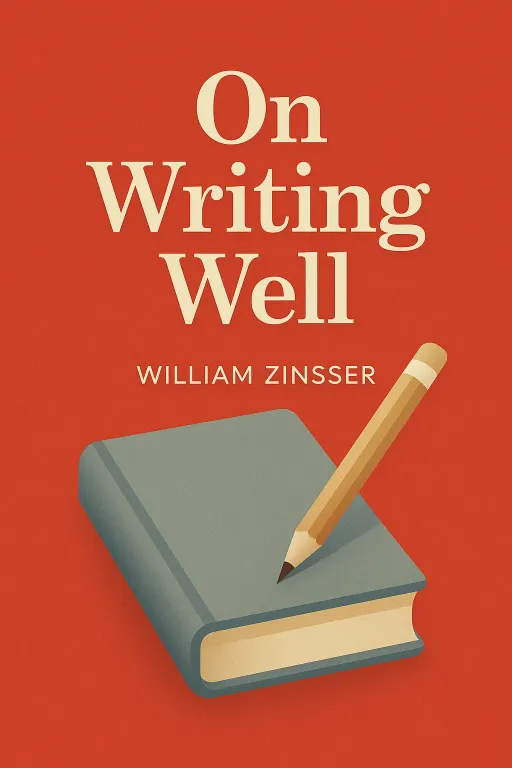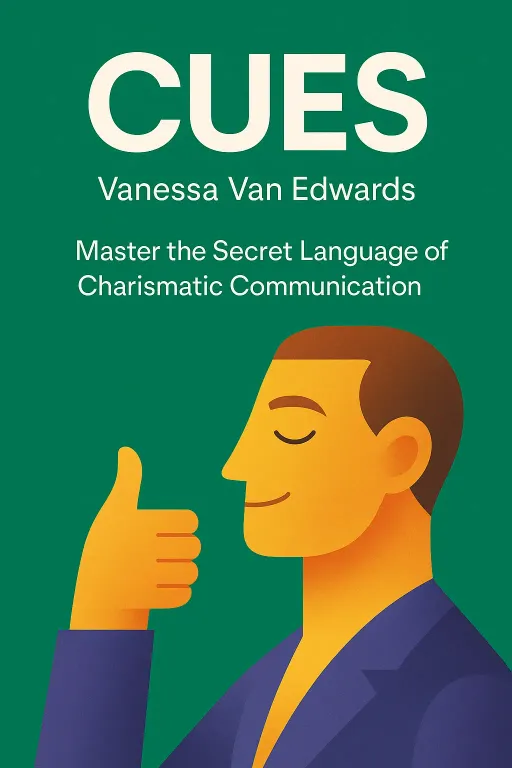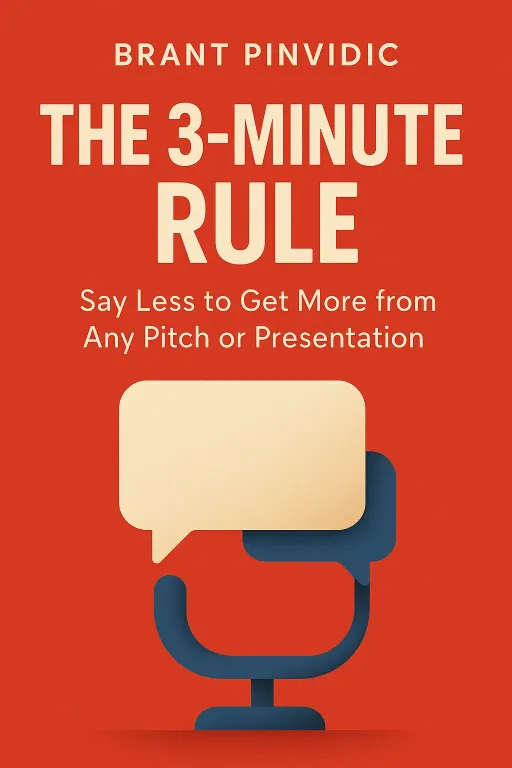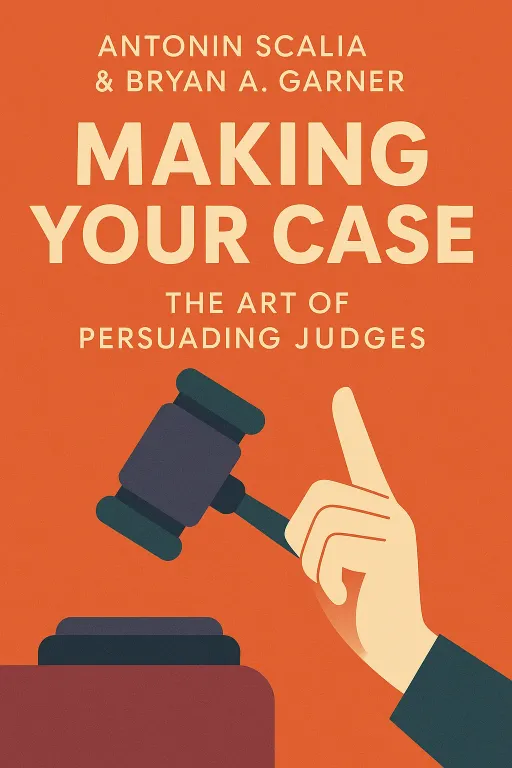
Persuading the Robe
12 minThe Art of Persuading Judges
Golden Hook & Introduction
SECTION
Michelle: Alright Mark, I've got a challenge for you. Five-word review of a book about persuading judges. Mark: Hmm. Let me think. Okay, I've got it. "Don't bore the person wearing the robe." How's that? Michelle: Perfect. Absolutely perfect. Mine is: "Logic is your sword, words your shield." And that's exactly what we're diving into today. Mark: I like that. It sounds like something out of a gladiator movie, but for nerds. Michelle: It kind of is! We're talking about the book Making Your Case: The Art of Persuading Judges, co-authored by the late Supreme Court Justice Antonin Scalia and the legal writing guru Bryan A. Garner. Mark: Wow, that's a powerhouse duo. You have a judge who spent decades on the receiving end of every argument imaginable, and a guy who literally writes the dictionary on legal language. It's like getting batting practice coached by both the league's top umpire and the world's best bat-maker. Michelle: That’s the perfect analogy. And what's so fascinating is that they didn't just rely on their own modern experience. They reached back centuries, drawing on the wisdom of classical rhetoricians like Aristotle and Cicero, and then blended that ancient wisdom with the realities of a 21st-century American courtroom. Mark: So it’s not just a dry legal textbook. Michelle: Not at all. It’s become a modern classic, widely acclaimed in legal circles for being incredibly practical, but also, as some reviewers put it, a genuine "delight to read." It’s filled with these moments of witty banter between the two authors. But the first, most fundamental lesson they teach is something that sounds obvious but is actually revolutionary for a lot of lawyers: you have to know your audience.
The Judge is Your Only Audience: The Psychology of Persuasion
SECTION
Mark: Okay, "know your audience." That sounds like Marketing 101. In this case, the audience is the judge. What's so revolutionary about that? Michelle: The revolutionary part is realizing the judge isn't an abstract embodiment of the law. The judge is a human being. A very busy, very smart, and often very skeptical human being who has read hundreds of briefs and heard thousands of arguments. Scalia and Garner’s first point is that your primary job isn't to be clever or poetic; it's to earn that human being's trust. Mark: Hold on a second. This is Justice Scalia we're talking about, right? The ultimate textualist, the originalist who famously argued that the law is about the words on the page, period. Now you're telling me he's co-writing a book about the psychology of persuasion and making a judge feel good about your argument? Michelle: That's the brilliant tension in the book! It’s not about emotional pandering. It’s about credibility. They argue that before a judge can be persuaded by your logic, they have to believe that you are a credible guide. If they don't trust you, they won't trust your argument, no matter how brilliant it is. Mark: So how do you build that trust? You can't just walk in and say, "Your Honor, I'm a very trustworthy person." Michelle: Exactly. You build it through your work. It means never, ever overstating your case. It means acknowledging the weaknesses in your argument upfront. It means being scrupulously honest about the facts and the law, even when it hurts you. They have this fantastic line: "Every word that is not a help is a hindrance." Mark: I like that. It’s so concise. Every word that isn't helping is actively hurting because it's wasting the judge's time and attention. Michelle: And eroding your credibility. They tell a story about how a lawyer can lose their entire case because they misrepresented a small fact or a minor legal precedent. The judge thinks, "Well, if they were willing to mislead me on that little thing, how can I trust them on the big, important points?" Suddenly, your entire argument is built on a foundation of sand. Mark: That makes total sense. It’s like finding out a restaurant has a dirty kitchen. You don't care how fancy the menu is anymore; you're not eating the food. You've lost trust in the whole operation. Michelle: That's the perfect way to put it. Your brief and your oral argument are your kitchen. You have to prove to the judge that it's impeccably clean and organized. You have to make their job easier. The goal is to become a trusted assistant to the court. When the judge sees your name on a brief, you want them to think, "Oh good. This person is going to help me understand this case clearly and honestly." Mark: It’s a long game, then. Credibility isn't just for one case; it's for your entire career. Michelle: Precisely. And once you've earned that trust, once the judge is actually open to being persuaded, that's when you bring out the heavy artillery. Mark: Okay, so once you've earned the judge's trust and they're actually listening, what do you hit them with? What's the secret weapon? Michelle: This is where the book gets beautifully classical and, for some, a little intimidating. They argue your entire case, every single point, should be built on the iron frame of a syllogism.
The Syllogism is Your Sword: Mastering the Logic of the Argument
SECTION
Mark: Okay, hold on. 'Syllogism.' That word just gave me a flashback to a philosophy class I think I slept through. Can you break that down for me like I'm trying to assemble IKEA furniture? Simple instructions, please. Michelle: I promise, it's simpler than it sounds. And way more sturdy than IKEA furniture. A syllogism is just a three-part argument. Part one is the Major Premise, which is a broad statement of principle or law. Part two is the Minor Premise, which is a specific fact. And part three is the Conclusion, which logically follows from the first two. Mark: Give me an example. A non-lawyer one. Michelle: The classic one from philosophy is the best. Major Premise: All men are mortal. Minor Premise: Socrates is a man. Conclusion: Therefore, Socrates is mortal. See? Unbeatable logic. You can't argue with it. Mark: Right. A + B = C. It's clean. It's mathematical. But how does that apply to a messy legal case? Michelle: That's the genius of their approach. They say you should be able to frame your entire argument that way. For example: Major Premise: Any statute that prohibits the criticism of public officials violates the First Amendment's guarantee of free speech. Minor Premise: The Sedition Act of 2024 is a statute that prohibits the criticism of public officials. Conclusion: Therefore, the Sedition Act of 2024 violates the First Amendment. Mark: Huh. When you lay it out like that, it feels... inevitable. It feels like gravity. Michelle: That's the point! A well-constructed syllogism makes the judge feel like your conclusion is the only possible one. It's not just your opinion; it's the product of inescapable logic. And the real work for the lawyer is making sure both of those premises are rock-solid and supported by evidence and legal precedent. Mark: But doesn't that sound... robotic? Where's the passion? The storytelling? The "A Few Good Men," 'I want the truth!' moment? I thought great lawyers were great storytellers. Michelle: They are! But Scalia and Garner would say the syllogism is the skeleton. The storytelling, the compelling facts, the eloquent language—that's the flesh you put on it. Without that strong, logical skeleton, your argument is just a formless, quivering blob. It might look interesting for a moment, but it can't stand up to a single poke from a skeptical judge. Mark: So the logic comes first. You build the steel frame of the skyscraper before you even think about what color to paint the walls or what kind of fancy windows to install. Michelle: A perfect analogy. And forcing yourself to think in syllogisms does something else that's incredibly valuable: it ruthlessly exposes the weaknesses in your own case. If you can't state your argument in that simple A + B = C format, it's a giant red flag that your argument isn't as strong as you think it is. Mark: Wow, so it's a tool for self-critique as much as it is for persuasion. Michelle: It's probably more important as a tool for self-critique. It forces you to be intellectually honest with yourself before you even step into the courtroom. And once you have that strong logical skeleton, the final step is perhaps the hardest one of all: subtraction.
The Art of the Edit: Why What You Omit is as Important as What You Say
SECTION
Mark: Subtraction. That sounds counter-intuitive. I'd think you'd want to throw every possible argument at the wall and see what sticks. Michelle: And that, they argue, is one of the biggest mistakes a lawyer can make. It goes back to credibility. If you make ten arguments, and nine of them are weak, the judge doesn't just ignore the nine weak ones. The nine weak ones cast a shadow of doubt on your one strong one. It makes you look desperate and unfocused. Mark: It’s like you’re saying, "I don't really know what my best point is, so here's a bunch of stuff, Your Honor. You figure it out." Michelle: And no judge has time for that. Their advice is to find your one, two, or at most three strongest arguments—the ones with the most solid syllogistic frames—and abandon everything else. Be ruthless. It takes courage to leave a potentially winning argument on the cutting room floor, but it shows the judge that you respect their time and that you have confidence in your best points. Mark: This is where the art comes in, I guess. The discipline to cut. Michelle: It's pure discipline. And this philosophy extends to the very words you choose. The book is famous for a recurring, witty debate between the two authors on a seemingly tiny point of style: whether to use contractions, like "don't" or "it's," in a formal legal brief. Mark: Wait, they actually argue about contractions in the book? That's amazing. I'm picturing two legal giants having a heated debate over an apostrophe. Michelle: They do! Garner, the language pragmatist, argues that using contractions makes writing sound more natural and less stilted. It's how people actually talk and write. Scalia, the formalist, is vehemently against it. He argues that a legal brief is a formal occasion, and the language should reflect that solemnity. He says it shows a lack of respect. Mark: That is hilarious. It's like two master chefs arguing over whether to use pre-ground pepper or to grind it fresh at the table. It seems so small, but it reveals a whole philosophy. Michelle: It absolutely does. And it's not just a cute anecdote. It illustrates their central point about persuasion. Every single choice matters. Your choice of arguments, your choice of words, even your choice of punctuation. It all sends a message to the judge about who you are as an advocate: Are you careful? Are you respectful? Are you clear? In legal writing, style isn't separate from substance. Style is substance, because it directly impacts clarity and, therefore, persuasiveness. Mark: So the big takeaway is that persuading a judge isn't about a single, brilliant moment of inspiration. It's about a thousand tiny, disciplined choices that add up to create an overwhelming impression of credibility and clarity. Michelle: You've got it. It's a craft, not a magic trick. And it's a craft built on a foundation of deep respect.
Synthesis & Takeaways
SECTION
Mark: So if we boil it all down, it feels like a three-step dance. First, you have to earn the human trust of the judge by being impeccably credible and honest. Second, you build your argument on an unbreakable logical frame, the syllogism. And third, you mercilessly cut away every single thing that doesn't support that frame. Michelle: Exactly. And the deeper insight here, the thing that makes this book more than just a style guide, is that true persuasion isn't about flashy tricks or emotional manipulation. It's about profound respect. Respect for the judge's intelligence, respect for their time, and respect for the logical integrity of the law itself. The book's real legacy is that it reframes advocacy not as a battle to be won, but as a service to the court—an effort to help the judge reach the right conclusion. Mark: That's a much more noble way of looking at it. It's less about being a hired gun and more about being a "trusted assistant to the court," as you said. Michelle: And there's one piece of this that anyone can apply, even if you never plan to write a legal brief or see the inside of a courtroom. It's their advice on syllogistic thinking. Before you try to persuade anyone of anything—your boss for a raise, your partner on where to go for dinner, even yourself to stick to a new habit—ask yourself: What is my major premise? What is my minor premise? Does my conclusion actually follow? Mark: That's a powerful mental model. It forces you to check your own logic before you open your mouth. It's a life-changing filter for your own thoughts. Michelle: It really is. It can save you from so many weak arguments and muddled decisions. Mark: We'd love to hear from our listeners on this. What's the most persuasive argument you've ever heard, in a movie, a book, or real life, and what made it so effective? Was it the logic? The credibility of the speaker? Let us know your thoughts on our social channels. Michelle: This is Aibrary, signing off.
